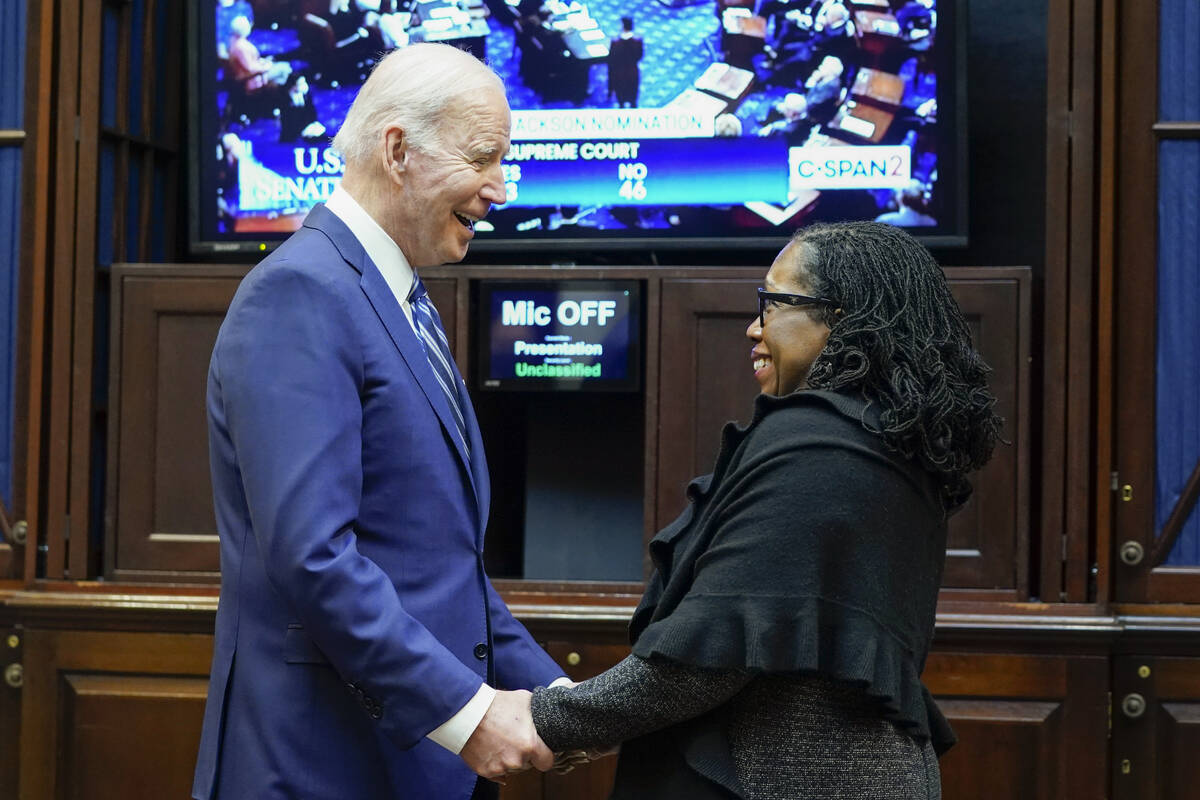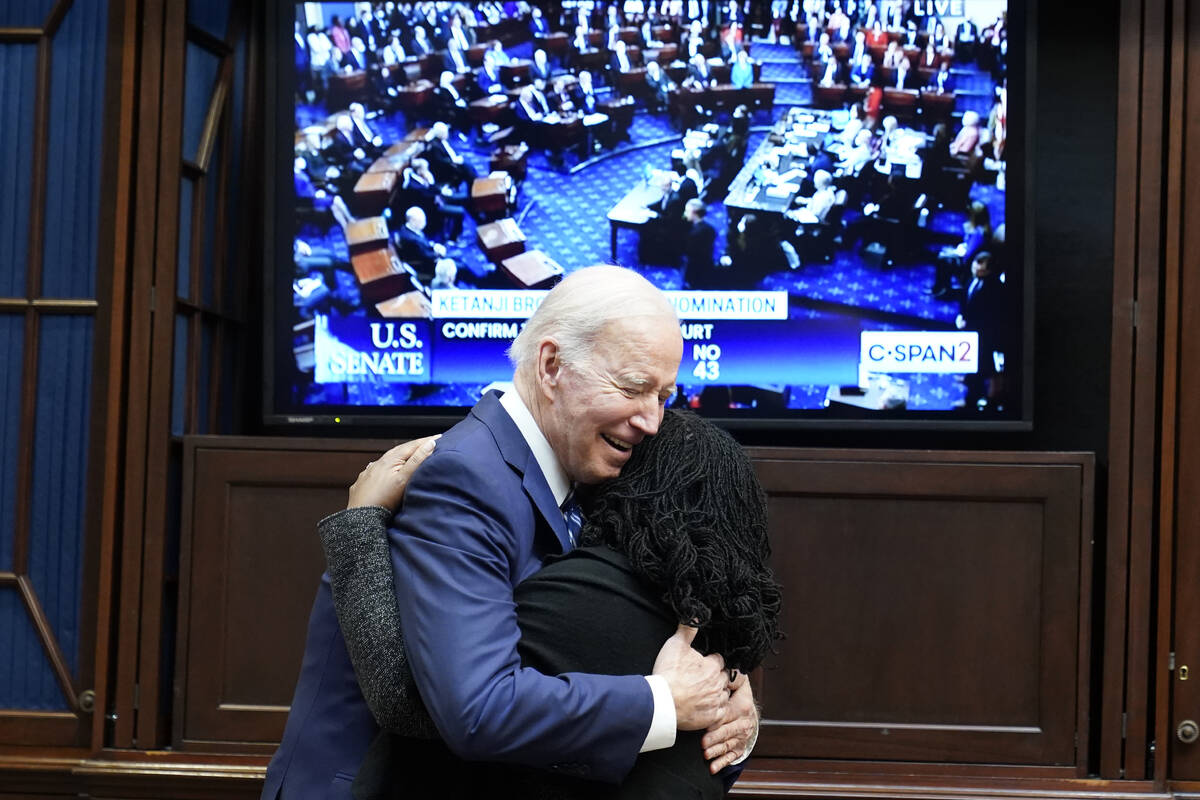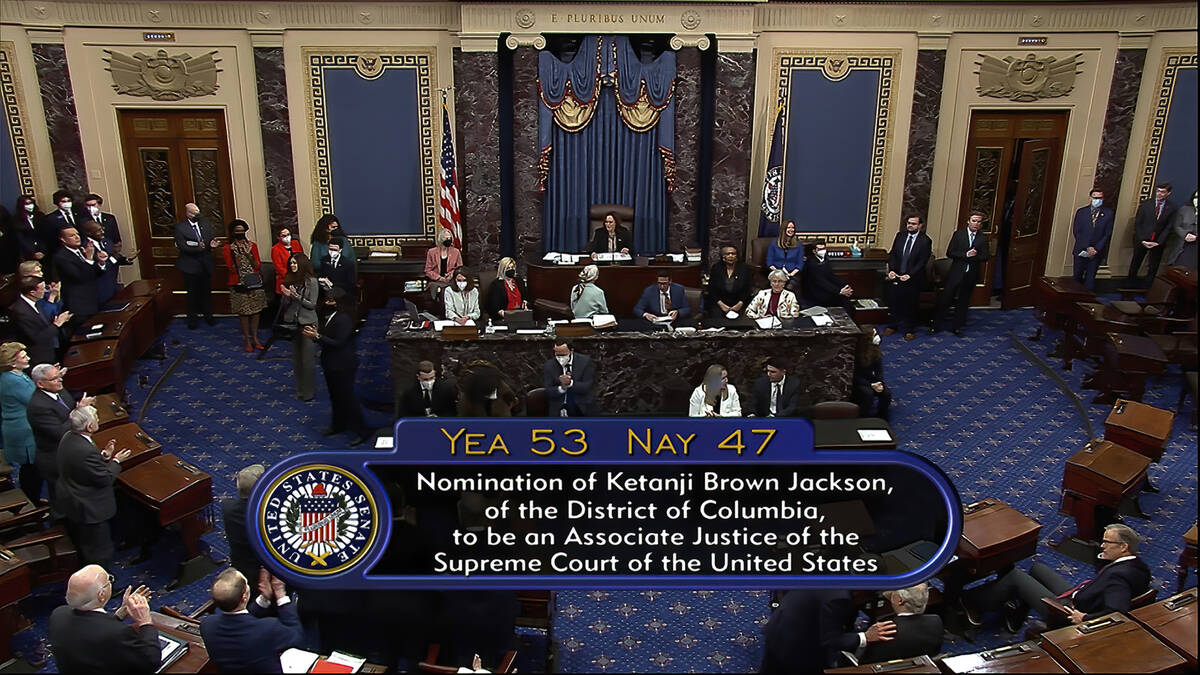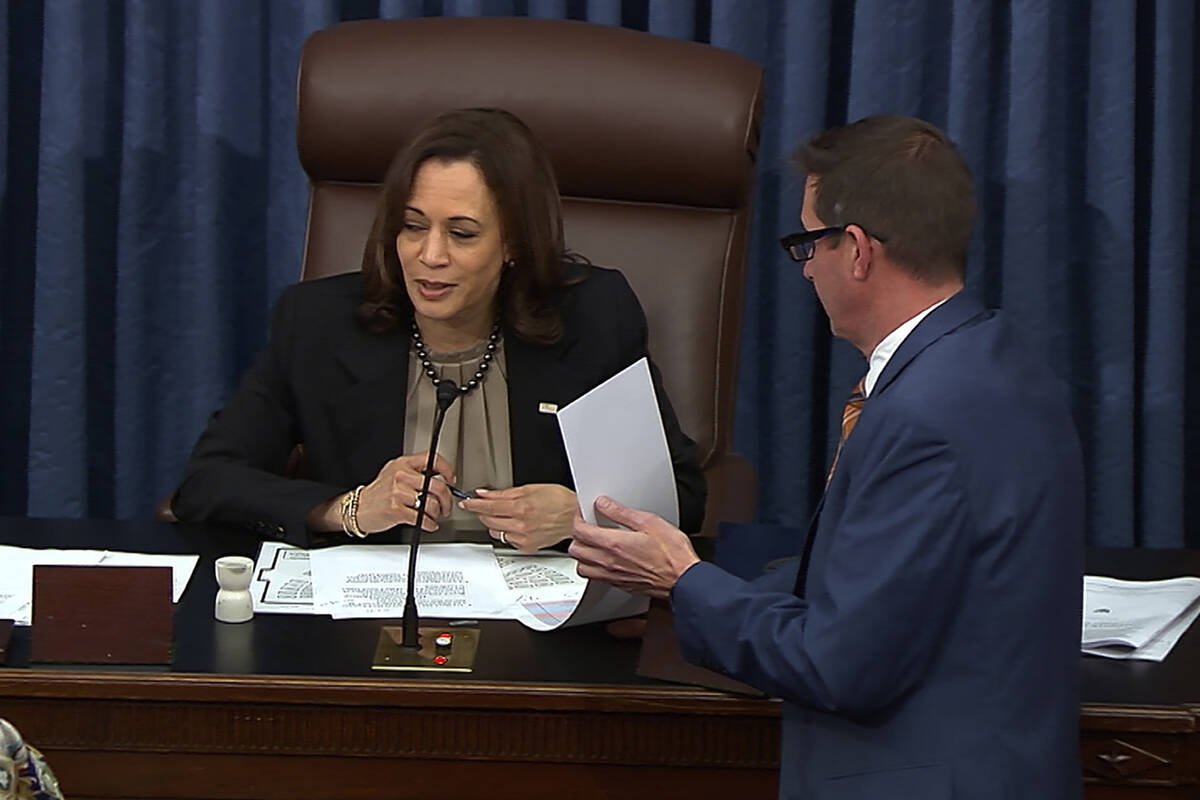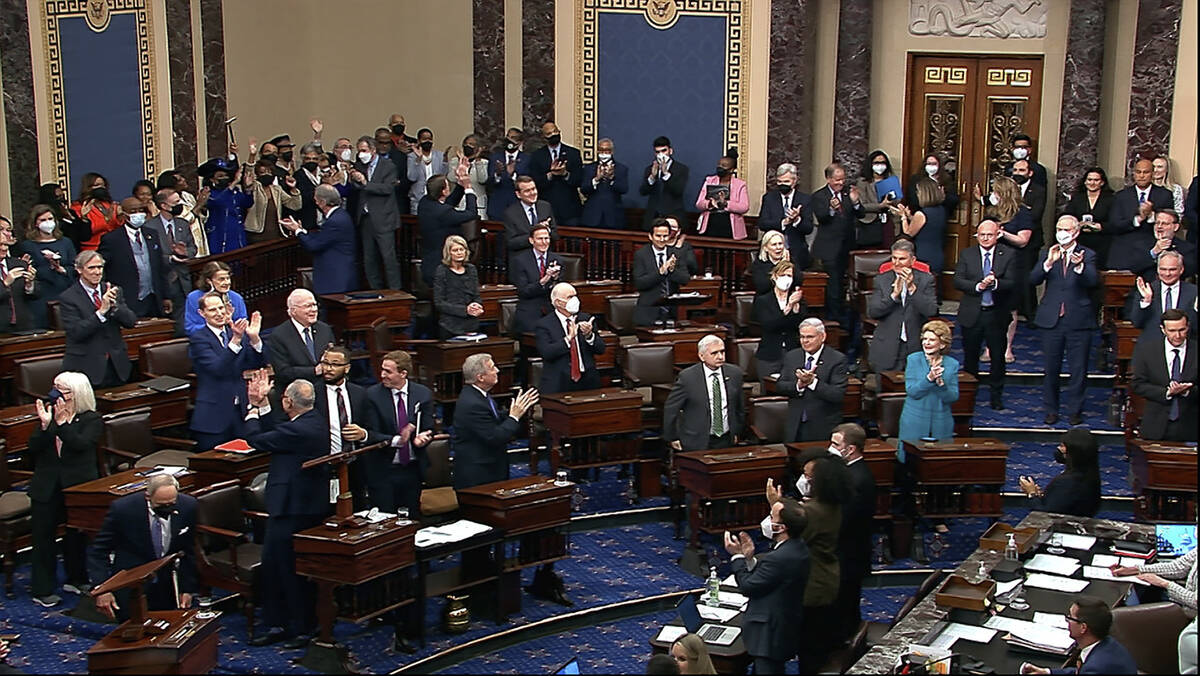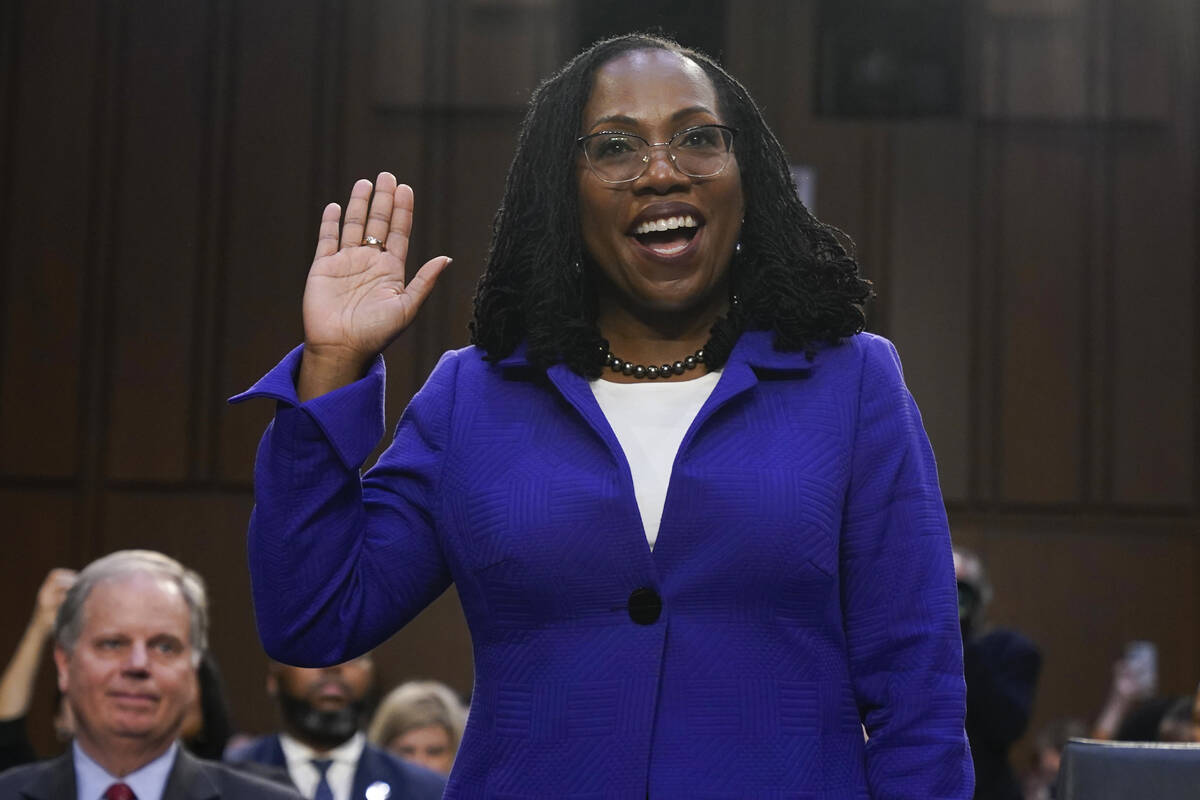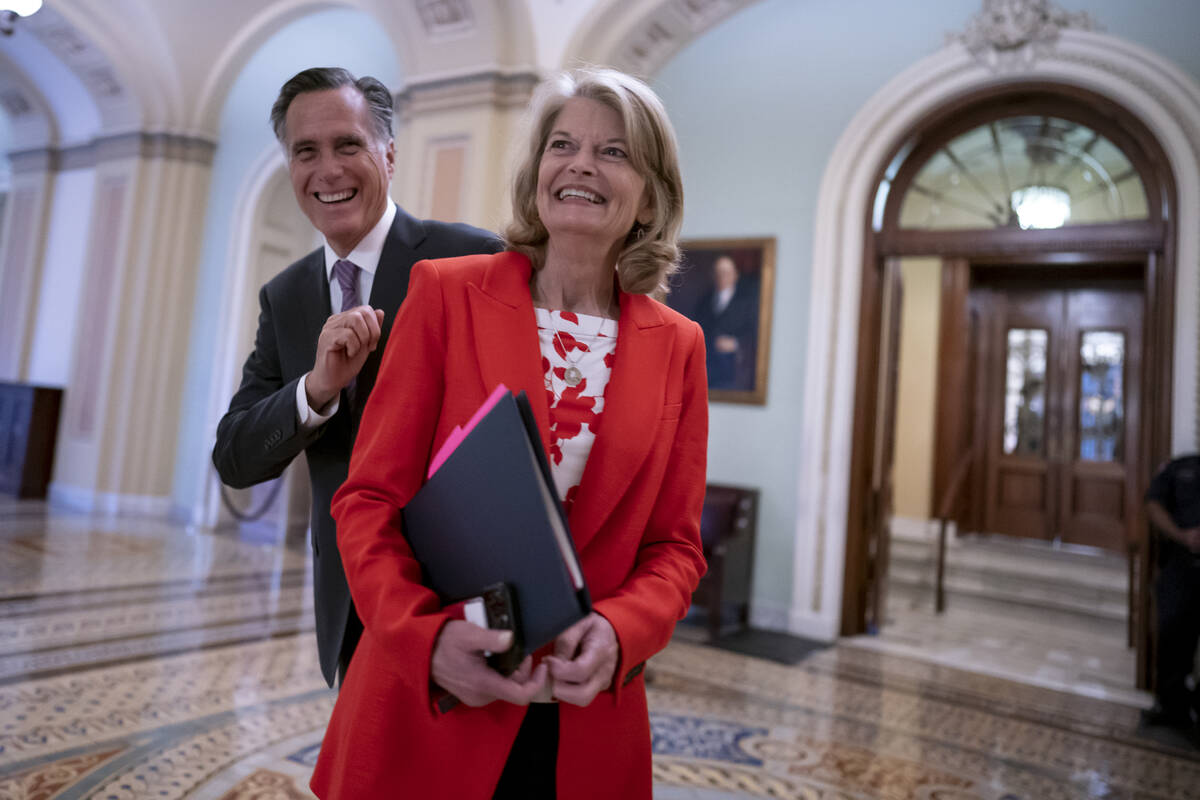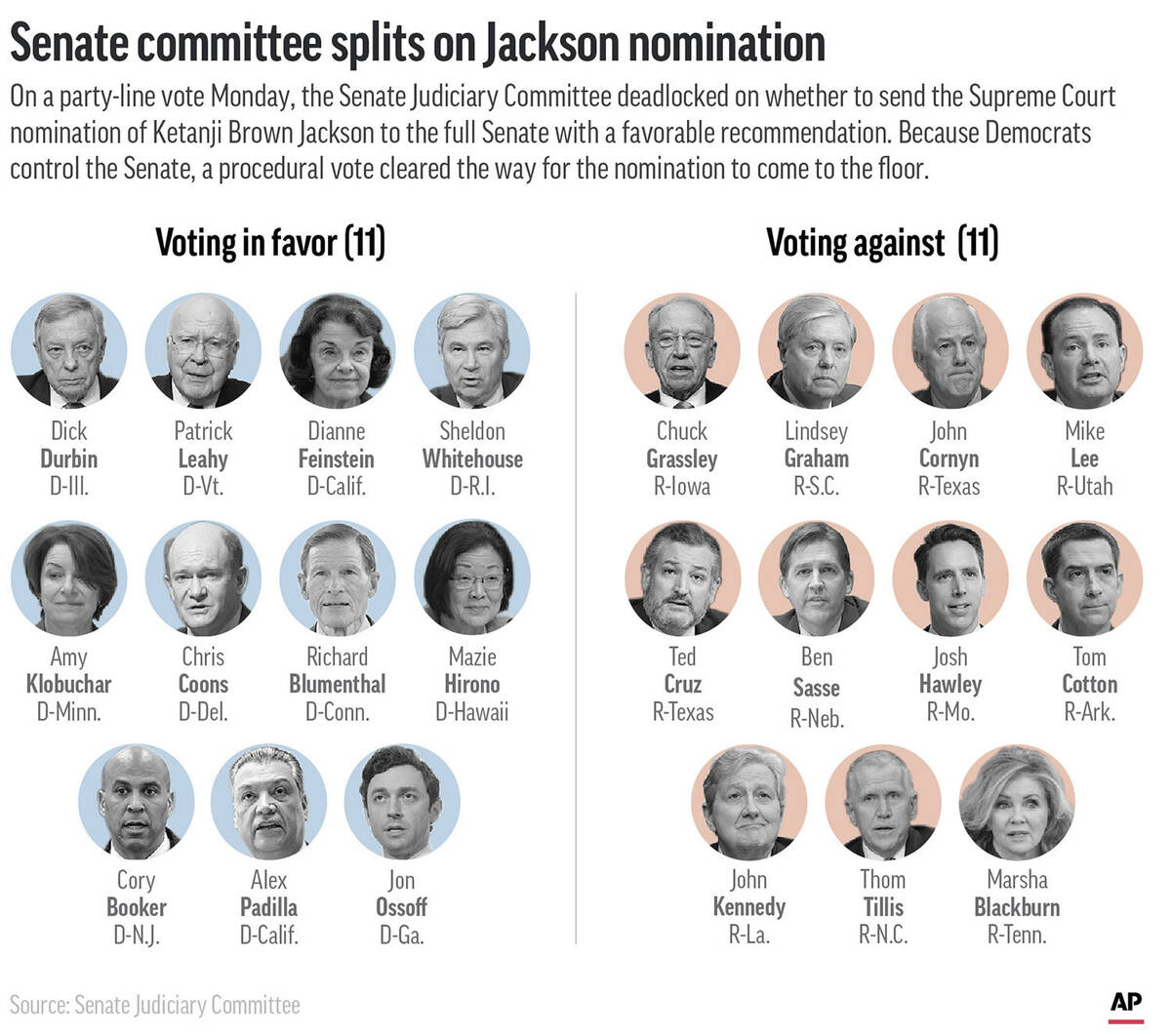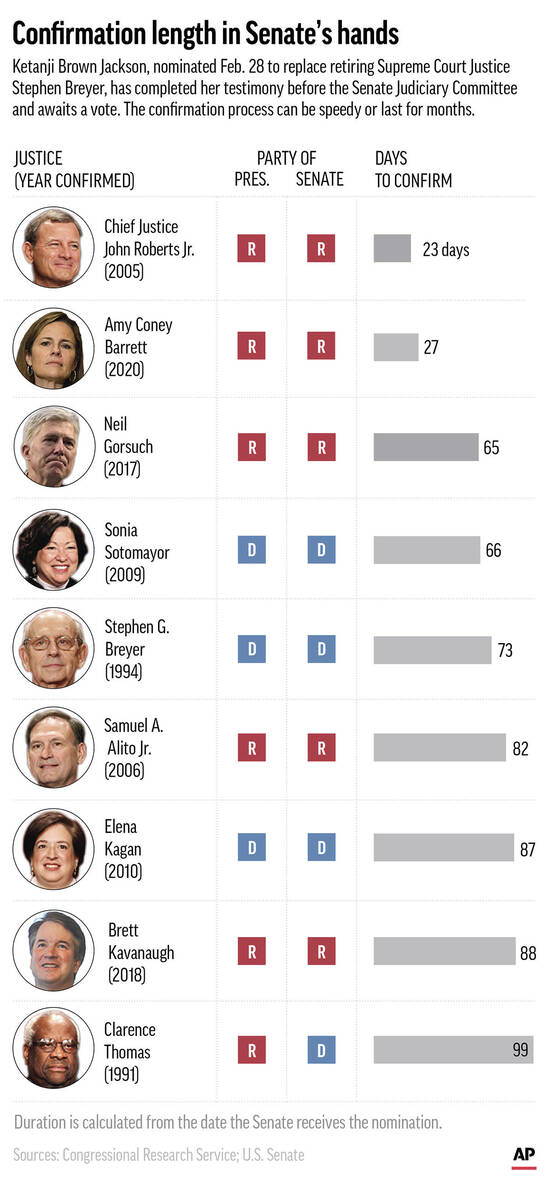Ketanji Brown Jackson confirmed to the Supreme Court
WASHINGTON – Ketanji Brown Jackson received bipartisan support for her Senate confirmation Thursday to become the first Black woman associate justice on the Supreme Court.
Senate Majority Leader Chuck Schumer, D-N.Y., in speech before the historic vote, said it was “a wonderful day, a joyous day, an inspiring day.”
Jackson, a 51 year-old appeals court judge with nine years experience on the federal bench, was confirmed five decades after Thurgood Marshall became the first African American confirmed to the high court, later followed by Justice Clarence Thomas.
Jackson also becomes the sixth woman to be elevated to the nation’s highest judicial bench and will serve with three others — Sonia Sotomayor, Elena Kagan and Amy Coney Barrett — in the upcoming term when the court will weigh state restrictions on reproductive rights.
Vice President Kamala Harris presided over the historic confirmation vote. But her tie-breaking vote in the 50-50 Senate was not needed.
The Senate voted 53-47 to confirm Jackson. Three Republican senators — Susan Collins of Maine, Mitt Romney of Utah, and Lisa Murkowski of Alaska — joined all 50 Democrats and independents in voting to confirm Jackson.
As the vote was gavelled to a close by Harris, the Senate chamber and galleries erupted in cheers.
‘Tremendously historic day’
At the White House, Jackson joined President Joe Biden and senior staff in the Roosevelt Room to watch the Senate vote on her nomination, according to the press office.
“This is a tremendously historic day in the White House and in the country,” said White House spokeswoman Jen Psaki.
On Friday, Biden, Harris and Jackson will deliver remarks at a White House ceremony on the South Lawn.
Nevada’s two Democratic senators, Catherine Cortez Masto and Jacky Rosen, met privately with Jackson over the past week. Both voted for her confirmation, citing her qualifications, experience and the need for the court to reflect the diversity of the country.
Cortez Masto, the first Latina elected to the Senate, said it is important to have broad support for any nominee to the Supreme Court, “but this is a historic one.”
Jackson’s selection represents “the interests of this country and diversity of this country,” Cortez Masto told the Review-Journal last week.
Rosen said Jackson’s qualification and work experience as a public defender, federal district judge and circuit court judge, coupled with being a wife and mother of two daughters, makes her uniquely suited for the judicial role.
“I think she’ll make a great associate justice,” Rosen told Nevada reporters following her private meeting with Jackson earlier this week.
Biden’s campaign pledge
Biden nominated Jackson to fill the vacancy created by the retirement of Justice Stephen Breyer, who announced he would step down after the court’s Spring term.
Biden followed through on his 2020 presidential campaign pledge to select a Black woman for a Supreme Court opening, a pronouncement that is credited with helping him win the South Carolina Democratic Primary and eventually the nomination following losses in Iowa, New Hampshire and Nevada.
Biden had considered federal Judge Michelle Childs of South Carolina, who was backed by Rep. James Clyburn, D-S.C., the House majority whip, and Sen. Lindsey Graham, R-S.C.
Graham announced his opposition to Jackson’s confirmation during the Senate Judiciary Committee hearings where he aired his frustrations with organized labor and liberal advocacy groups that he claimed tanked Childs’ nomination.
Clyburn publicly backed Jackson after she was nominated.
Over four days of Senate hearings last month and 24 hours of questioning, Jackson was repeatedly grilled by Republicans over her work experience and previous rulings and sentencings.
Her qualifications were never questioned.
Sen. Josh Hawley, R-Mo., a potential 2024 presidential candidate, led the GOP charge that contended Jackson was lenient in sentencing pedophiles convicted on child pornography charges.
“Judge Jackson habitually sympathized with criminals over victims,” said Sen. Tom Cotton, R-Ark., another potential presidential contender.
Democrats on the Judiciary Committee, and in the Senate, came to her defense and touted her endorsement from the Fraternal Order of Police.
Additionally, experts testified before the hearing that Jackson’s sentencing of child pornography defendants was in the norm of judges, nationally, who tended to impose less jail time than U.S. Sentencing Commission guidelines in more than 70 percent of cases.
Cortez Masto, a former Nevada attorney general, said Republican-led charges of leniency “were discredited” by the testimony of experts. Rosen said that after watching the hearings, she felt GOP lawmakers missed an opportunity to ask substantive questions.
Broken process?
Republicans on the committee also questioned Jackson on social hot-button and election-year issues.
Sen. Ted Cruz, R-Texas, repeatedly interrupted Jackson’s answers and read from children’s books in trying to tie her to critical race theory in education. Cruz is expected to again run for the GOP presidential nomination in 2024.
Some, like Republican Sen. Ben Sasse of Nebraska, sought her legal interpretations and reasoning behind rulings while dismissing some of his colleagues’ antics, some of which he said rose to a new level of “jackassery.”
Collins said the confirmation process appeared broken. Others, like Murkowski, bemoaned the lack of civility.
And lawmakers on both sides of the aisle pointed to the conduct displayed during previous nominations, including the spectacle over decades-old sexual misconduct allegations involving Brett Kavanaugh, and the failure to give nominee Merrick Garland a hearing and a vote.
But despite the partisan battles, Jackson’s nomination and confirmation were celebrated on Thursday.
The Congressional Black Caucus called Jackson one of the most qualified candidates for the high court in years, citing her rise from academic excellence to judicial posts and later judgeships.
“Her confirmation will improve the Supreme Court in numerous crucial ways,” said Carl Tobias, a University of Richmond School of Law professor and founding faculty of the William S. Boyd School of Law at UNLV.
“She will improve its diversity in terms of ethnicity, gender, ideology and experience. Jackson promises to be a mainstream Justice, which is important, because the Court is more ideologically conservative than it has been in nearly a century and may not reflect the public it serves,” Tobias said.
During his one term in office, former President Donald Trump appointed three justices to the Supreme Court, giving conservatives a 6-3 advantage.
Jackson is largely expected to vote with the court’s liberal wing, as did Breyer. Jackson clerked for Breyer and two other judges on federal courts.
In addition to reproductive rights, the Supreme Court is expected to hear cases this Fall involving voting rights, expanded gun rights and academic admissions.
Jackson told the Judiciary Committee she would recuse herself from the admissions case involving Harvard College, where she still sits on a board overseeing admission policy.
Contact Gary Martin at gmartin@reviewjournal.com. Follow @garymartindc on Twitter.



